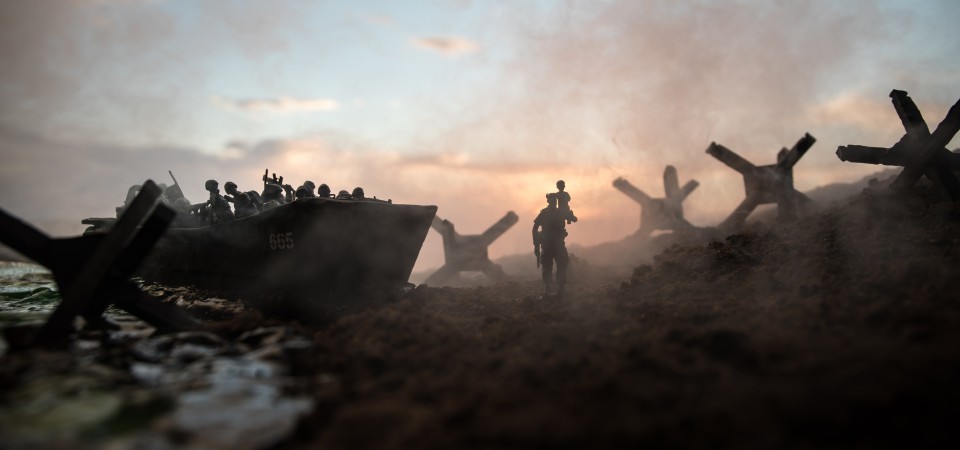The first anniversary, in June 1945, was a rather quiet occasion. The war in the Pacific had not yet ended. Larger ceremonies involving dignitaries followed in the 1950s and 1960s.
However, historians highlight 1984 as the year major anniversary commemorations became diplomatic events. France invited heads of state to attend the proceedings in Normandy, and connections were made between the historic events being remembered and the geopolitics of the present.
The 2024 ceremonies are no different. While veterans have been placed front and centre, especially as their numbers are sadly declining, heads of state are using the anniversary to address the challenges and concerns facing the world today.
D-day during the cold war
In the immediate post-1945 period, the first memorials and monuments to the D-day landings started to go up in Normandy. The French government sponsored a vast commemorative project, the Voie de la Liberté, which marked the route taken by the allied armies as they battled their way through France.
Authorities in the US and Britain similarly invested in the memory of D-day. Their commemorative organisations, respectively the American Battle Monuments Commission (the ABMC), and the Imperial (now Commonwealth) War Graves Commission, played key roles.
The largest British war cemetery at Bayeux, in Normandy, was completed in 1952. The ABMC’s Normandy American Cemetery, which would be made famous by the opening scenes of the 1998 movie, Saving Private Ryan, followed in 1956. These sacred sites quickly became locations for solemn remembrance, particularly during anniversary commemorations.
But such commemorations also provided an invaluable opportunity to use the past to make statements about the present, something often called “memory diplomacy”.
One issue loomed especially large in this period: the continued importance of allied unity in the face of what western leaders perceived to be Soviet aggression, particularly after events such as the Berlin blockade, from 1948-49.
Continued…

For the full article by Dr Sam Edwards visit the Conversation.
ENDS
